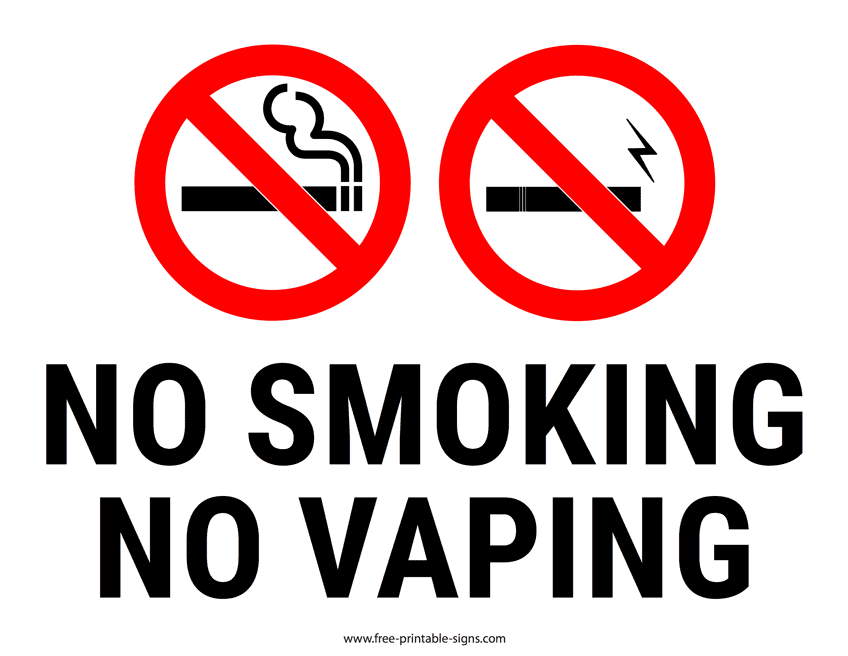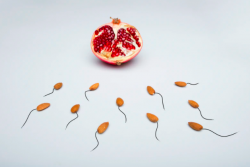What effect does vaping have on male infertility, if any?
This is a newer question being asked, with research hurrying to catch up with a global trend.
We know that smoking (cigarettes) affects male fertility, largely due to 4000+ chemicals in the cigarette themselves. But what about just nicotine alone? What about the other products in vape liquid?
Turns out, nicotine itself is a problem. It significantly lowers sperm count, sperm motility, sperm viability, and increases the percent of sperm with abnormal morphology (Budin 2017). It also reduces the weight of the testes, testosterone level, and testicular antioxidant status (Erat 2007).
One study looking at the above sperm parameters used an amount of nicotine equivalent to approximately 16 cigarettes per day, considered “light” smoking. (It would be approx. 48mg nicotine per day in an average 175lb male). Sperm motility decreased 14%, sperm viability decreased 30%, abnormal morphology increased 6%, and oxidative damage was measurable in blood levels. (Budin 2017)
Sperm are highly sensitive to oxidative stress and easily damaged.
We call them the “canary in the coal mine,” because a person may be objectively disease-free, but still have abnormal sperm parameters as a result of oxidative stress induced damage.
Oxidative stress is caused by everything from pollutants in our environment, to stress, to poor nutrient status, to aging. Picture an apple that you slice in half and let sit on the counter. The browning process is oxidative stress happening before your eyes. If you squirt lemon juice on it (ie Vitamin C), you protect that apple from browning. Our bodies are well suited to handle oxidative stress, if they have the resources to do so: vitamins, minerals, enzymes, and polyphenols like in foods high in antioxidants.
If sperm have abnormal morphology, meaning shape, it can be linked to damaged fats in the membranes.
This is part of the reason why healthy ratios of omega 3 fats are important to counterbalance damaged, rancid food-based fats as well as overall oxidative stress. Nicotine damages the formation of sperm via oxidative stress to the fatty membrane (Pacifici 1993).
Nicotine also disrupts the acrosome reaction needed for the fertilization of an egg.
This is a parameter of fertility that is not measured outside of advanced clinical research settings. It refers to the ability of a sperm to penetrate the outer protective membrane of an egg via an “acrosome reaction,” allowing for successful fertilization and the progression to an embryo (Oyeyipo 2014).
The good news is that oxidative stress (and sperm damage) can be mitigated to some degree with antioxidants. These are nutrients like zinc, selenium, vitamin E, vitamin C etc that have protective effects against damage. I always make a point that while adding in these well-researched nutrients is a must, we can’t always out-supplement a bad habit. Stopping the damage from occurring in the first place is a necessary part of the treatment plan.
What about the liquid that is used in vapes?
Even if it does not contain nicotine, it is damaging to sperm production. Studies show it increases oxidative stress and disrupts hormone production (Golli 2016).
The most common liquid carrier sounds innocent and natural enough: “vegetable glycerin.” Maybe it’s fine to eat in your food (and is labelled as “Generally Recognized As Safe” for oral consumption), but when you are combusting it in a vape or e-cigarette, you are left with a different product and different toxicity effects. The various flavours are also an issue: Many compounds not listed on labels have been identified in e-liquids, some of which turn into known toxicants when heated and aerosolized. Several hazardous compounds have been found to be formed including formaldehyde, acetaldehyde, and acrolein, which are known carcinogenic toxicants (Eaton 2018). And yes, these cause oxidative stress as well.
If you want to read all about the additives in and health effects of electronic nicotine delivery systems, read this: https://www.ncbi.nlm.nih.gov/books/NBK507184/)
Bottom line: stay away from vapes (with or without nicotine) for fertility.
Questions? Send us a note today or book online.
Resources:
- Erat M, Ciftci M, Gumustekin K, Gul M. Effects of nicotine and vitamin E on glutathione reductase activity in some rat tissues in vivo and in vitro. Eur J Pharmacol. 2007;554(2–3):92–97. https://doi.org/10.1016/j.ejphar.2006.10.008. [PubMed] [Google Scholar]
- Pacifici R, Altieri I, Gandini L, Lenzi A, Pichini S, Rosa M, et al. Nicotine, cotinine, and trans-3-hydroxycotine levels in seminal plasma of smokers: effects on sperm parameters. Ther Drug Monit. 1993;15(5):358–363. https://doi.org/10.1097/00007691-199310000-00002. [PubMed] [Google Scholar]
- I P Oyeyipo 1, P J Maartens, S S du Plessis. In vitro effects of nicotine on human spermatozoa. Andrologia. 2014 Oct;46(8):887-92.
- doi: 10.1111/and.12169. Epub 2013 Sep 30. PMID: 24079388
- El Golli,D. Rahali,A. Jrad-Lamine,Y. Dallagi,M. Jallouli,Y. Bdiri. Impact of electronic-cigarette refill liquid on rat testis. Toxicology Mechanisms and Methods, Volume 26, 2016 – Issue 6
- Published Online: 21 Apr 2016
- Eaton DL, Kwan LY, Stratton K, editors. Toxicology of E-Cigarette Constituents. National Academies of Sciences, Engineering, and Medicine; Health and Medicine Division; Board on Population Health and Public Health Practice; Committee on the Review of the Health Effects of Electronic Nicotine Delivery Systems; Public Health Consequences of E-Cigarettes. Pages 417-424 | 2018 Jan 23.
- Available from: https://www.ncbi.nlm.nih.gov/books/NBK507184/










